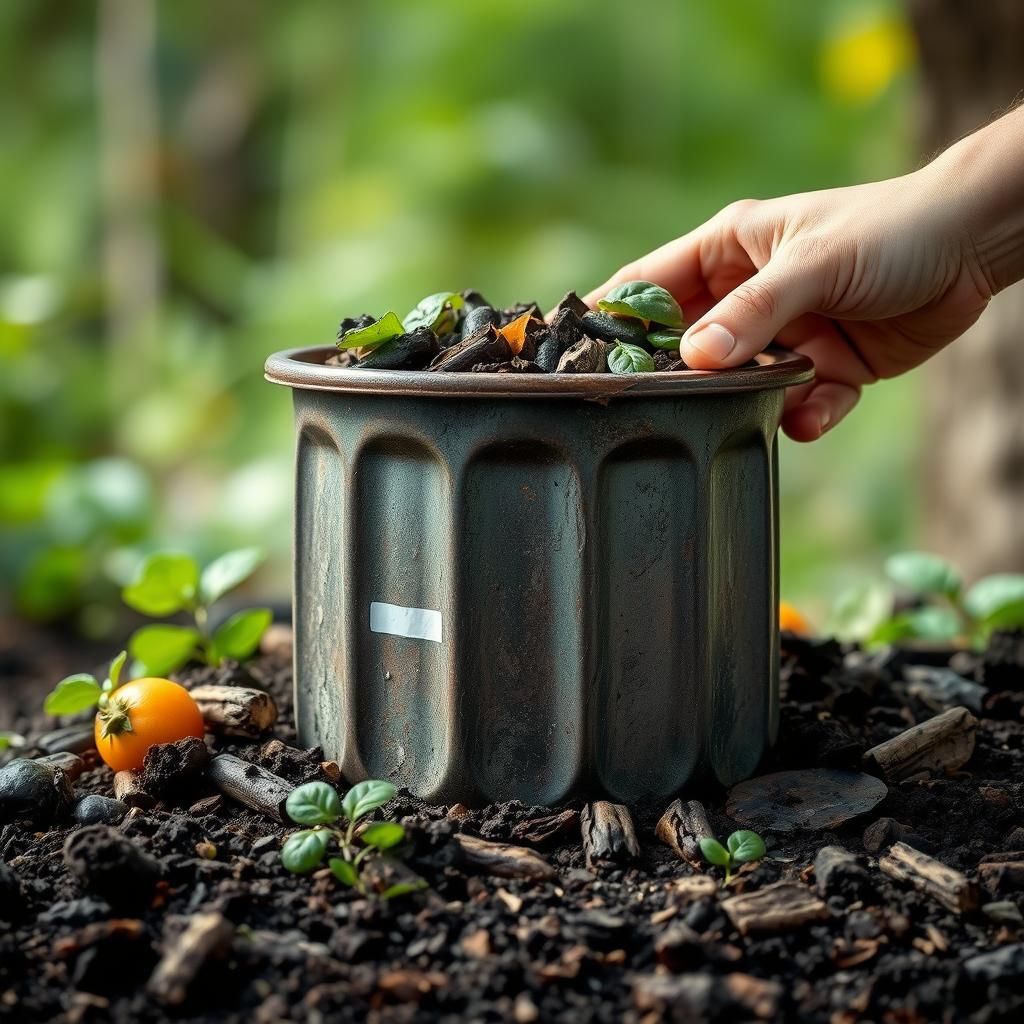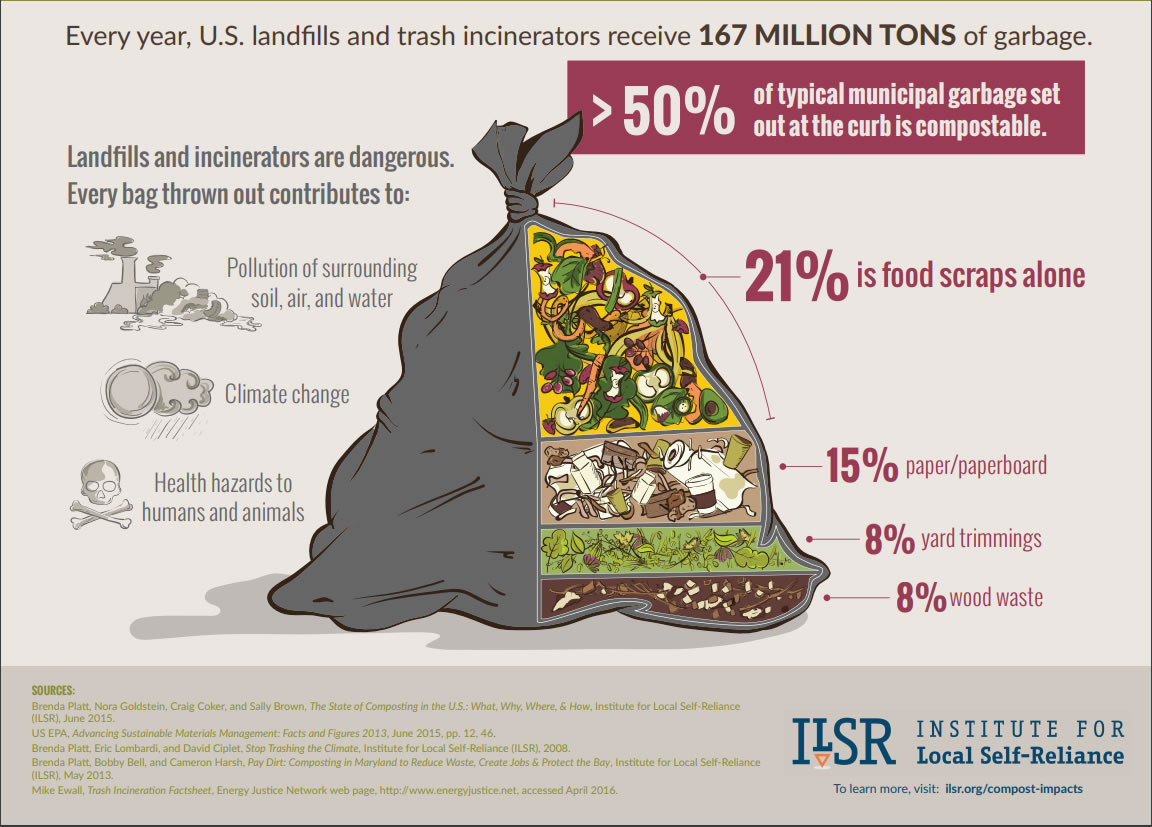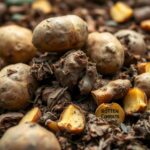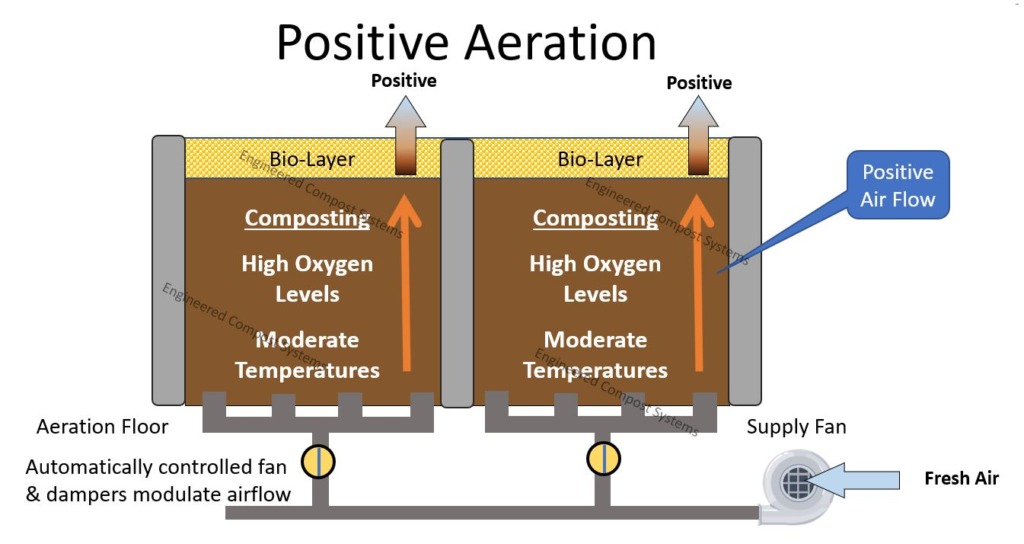What Are Two Negatives of Composting? Exploring the Downsides of Organic Waste Solutions

Composting is often hailed as an environmentally friendly solution for organic waste management, offering numerous benefits such as reducing landfill contributions and enhancing soil health. However, it is essential to consider the potential downsides that accompany this practice. In this article, we will explore two significant negatives of composting: the challenges of maintaining a properly balanced compost pile and the potential for attracting pests and unwanted wildlife. By examining these drawbacks, we aim to provide a more comprehensive understanding of composting and help individuals make informed decisions about their waste disposal methods.
What are the Downsides of Composting?
Composting can be a wonderful way to reduce waste and enrich soil; however, there are notable downsides that can deter individuals from participating. One significant drawback is the space requirement; composting typically necessitates a designated area that can accommodate a compost bin or pile, which may not be feasible for those with limited outdoor space. Additionally, the maintenance of a compost pile can be labor-intensive. Regular turning, monitoring of moisture levels, and balancing green and brown materials require consistent attention and effort, making it a less attractive option for people with busy lifestyles.
Space Limitations
One of the primary challenges associated with composting is the need for adequate space. Many urban dwellers live in apartments or homes with little or no outdoor area, which makes it difficult to set up a compost bin or pile. Without proper space, individuals may find it impractical to store organic materials and may struggle to maintain an effective composting system. Additionally, the size of the composting site must be large enough to facilitate aeration, decomposition, and management of materials, leading to further complications in compact living environments.
Time Investment
Composting requires a time commitment that some individuals may not be prepared to offer. The process involves regularly adding materials, turning the compost to ensure adequate aeration, and monitoring moisture levels to facilitate optimal decomposition. For many, especially those with hectic schedules, dedicating time to compost maintenance can feel overwhelming. This perceived pressure to invest time may deter some from participating in composting practices altogether, despite the long-term environmental benefits.
Pest Attraction
Another significant concern with composting is the potential attraction of pests. If not managed properly, a compost pile can become a breeding ground for insects, rodents, and other unwanted animals. Food scraps, especially those high in sugars or rich in odors, can entice pests, posing a challenge for composters who strive to keep their environment clean and tidy. Implementing strategies to deter pests, such as properly covering food scraps and maintaining a balanced composting mix, can require additional effort and diligence from those undertaking composting.
Odor Issues
Improperly managed compost heaps can emit unpleasant odors, which can be a drawback for those living in close proximity to their composting site. A well-balanced compost system should not have a strong smell; however, when too many green materials or too much moisture is present, anaerobic decomposition can occur, leading to foul odors. This situation not only negatively impacts the composting experience but can also lead to complaints from neighbors, contributing to tension and discouragement among aspiring composters.
Learning Curve
Starting to compost often comes with a steep learning curve. Understanding the right balance of green and brown materials, the ideal moisture content, and the proper method for turning the compost can be daunting for beginners. Without prior knowledge, a new composter might face challenges that lead to frustration or dissatisfaction. This learning process may deter beginners from continuing their composting efforts and could prompt them to abandon the practice altogether, despite its advantages for waste reduction and soil enrichment.
| Disadvantage | Description |
|---|---|
| Space Limitations | Inadequate space for compost bins and materials in urban settings. |
| Time Investment | Regular maintenance and monitoring required for effective composting. |
| Pest Attraction | Improper management can attract rodents and insects. |
| Odor Issues | Foul smells from improperly managed compost heaps. |
| Learning Curve | New composters may struggle with the complexities of the process. |
What are the threats of composting?

Composting is a process that provides numerous benefits; however, it also entails specific threats and challenges that can undermine its effectiveness and safety. Understanding these threats is crucial for anyone looking to practice composting responsibly.
Contamination Risks
Composting can lead to contamination of the final product if non-biodegradable materials are included. Items such as plastics, metals, and other synthetic materials can not only hinder the decomposition process but also result in environmental harm when the compost is used.
- Improper materials: Including waste that does not decompose naturally.
- Inorganic substances: Presence of chemicals from pesticides or heavy metals.
- Microbial contamination: Input of pathogens from spoiled food or waste.
Odor Issues
Odors produced during the composting process can become a nuisance both for the composter and for neighbors. These odors often come from anaerobic (without oxygen) decomposition, which can occur when organic matter is compacted and moisture levels are not adequately managed.
- Anaerobic conditions: Lack of oxygen leading to unpleasant smells.
- High moisture levels: Risks of foul odors when materials are too wet.
- Improper balance: Ratio of green (nitrogen-rich) to brown (carbon-rich) materials can affect odor.
Pests and Vermin
Composting can attract unwanted pests, such as rodents, flies, and other insects. If not managed properly, a compost pile can become a breeding ground for these animals, which can lead to health risks and exacerbate other threats.
See also:
- Food scraps: Attract pests if not buried thoroughly within the compost.
- Open compost bins: More accessible to wildlife compared to enclosed systems.
- Inadequate management: Failing to turn or aerate the pile regularly can encourage infestations.
Temperature Management
The composting process generates heat, and maintaining the right temperature is critical for effective decomposition. However, extreme temperatures (either too hot or too cold) can inhibit the activity of beneficial microorganisms essential for breaking down organic matter.
- Heat generation: Improper aeration can lead to excess heat, possibly killing microorganisms.
- Cold conditions: Low temperatures can slow down or halt the composting process.
- Thermal variation: Fluctuations can disrupt the balance of microbial life.
Time Commitment
Proper composting demands time and attention. New composters often underestimate the amount of time needed to maintain the compost pile effectively, which can result in subpar compost quality or failure of the composting process altogether.
- Regular monitoring: Need to check moisture levels and temperature frequently.
- Turning the pile: Essential to aerate, can be labor-intensive.
- Patience required: Composting is not an instant process; it takes weeks to months.
Why are people against composting?

Many people oppose composting for various reasons, often rooted in misconceptions, practical challenges, or environmental concerns. Understanding these objections is crucial for addressing them and promoting sustainable waste management practices. Below are some of the key reasons why individuals may be against composting.
Misconceptions About Composting
Many people have misconceptions about composting that lead them to reject the idea altogether. These beliefs often stem from a lack of education or exposure to effective composting practices.
- Some think composting is too complicated or requires specialized knowledge.
- Many believe composting produces unpleasant odors, leading them to fear attracting pests.
- There is a common misconception that only organic waste can be composted, excluding a broader range of materials.
Space Limitations
Another significant factor that discourages people from composting is the lack of space. Urban environments, in particular, can be challenging for potential composters.
- Individuals living in apartments often lack the outdoor space needed for traditional compost bins.
- Limited kitchen space can make managing kitchen scraps difficult.
- Some may find it inconvenient to transport compost materials to designated sites.
Fear of Pests
The fear of attracting pests is a prevalent concern among those considering composting. Many are worried that compost heaps will invite rodents, flies, and other unwanted animals.
- Improper composting can indeed lead to odors that attract pests, fueling this fear.
- People may not be aware of methods to manage or minimize pest problems effectively.
- Some believe that composting can create an unhealthy environment, risking their family’s health.
Maintenance Issues
Composting requires a certain level of maintenance, which can be a deterrent for busy individuals or those who lack gardening interest.
- Frequent turning or aerating of compost is necessary to ensure proper decomposition.
- Monitoring moisture levels can be perceived as a nuisance for those with time constraints.
- Some people view the time investment for composting as not worth the potential benefits.
Environmental Concerns
Ironically, some people are against composting due to environmental concerns, fueled by misunderstanding how composting impacts waste management.
- There are fears that composting may not significantly reduce landfill waste or greenhouse gas emissions.
- Some argue that industrial composting facilities may not follow sustainable practices.
- A few believe that composting promotes increased consumption of disposable products rather than focusing on reduction and recycling.
Is composting positive or negative?

Environmental Benefits of Composting
Composting offers significant environmental benefits that contribute to sustainability. By converting organic waste into valuable compost, this process reduces the amount of waste sent to landfills, thereby minimizing greenhouse gas emissions. Additionally, composting helps enhance soil health and biodiversity. The advantages include:
- Reduction of landfill waste: Composting diverts organic materials from landfills where they would produce methane, a potent greenhouse gas.
- Soil enrichment: The resulting compost enriches soil with nutrients, improving its structure and fertility.
- Encouragement of biodiversity: Compost helps support various organisms in soil, fostering a healthy ecosystem.
Economic Value of Composting
Investing in composting can yield economic benefits for communities and individuals. By creating a local composting system, municipalities can save on waste disposal costs and provide a valuable resource for local agriculture and gardening. The economic advantages include:
See also:
- Cost savings: Reducing waste disposal fees through composting can save municipalities and households money.
- Job creation: Establishing composting facilities can create local jobs in waste management and agricultural sectors.
- Increased local agriculture: Access to compost can improve crop yields, benefiting local farmers and food producers.
Health Implications of Composting
Composting also has important health implications that can positively impact communities. When organic waste is composted correctly, it reduces harmful pathogens and attracts beneficial microorganisms. Key health-related points include:
- Reduction of pests: Proper composting can deter pests that typically thrive on organic waste, improving local sanitation.
- Safe use in gardens: Composting produces organic matter that, when mature, is safe to use in gardening, promoting healthy food production.
- Mitigation of odor: Effective composting techniques can minimize unpleasant odors, creating a more pleasant environment.
Challenges and Misconceptions of Composting
Despite its benefits, composting faces several challenges and misconceptions that may discourage individuals and communities from adopting the practice. Understanding these challenges can lead to more effective composting strategies. Some common challenges include:
- Space limitations: Many people believe composting requires large spaces, making it seem unmanageable for urban settings.
- Maintenance concerns: Some individuals find the maintenance required for compost bins daunting or time-consuming.
- Misunderstandings about safety: There are myths regarding health risks associated with composting that can deter people.
Community composting initiatives can have positive social impacts, fostering a sense of community and collaboration among residents. These initiatives often lead to greater environmental awareness and responsibility, enhancing social cohesion. Relevant social aspects include:
- Community engagement: Composting programs encourage residents to participate in sustainable practices together, fostering community spirit.
- Educational opportunities: Community composting initiatives provide educational resources on sustainability and environmental stewardship.
- Promotion of local food systems: By creating compost locally, communities can support local food production, encouraging sustainable eating habits.
How can composting go wrong?

Composting is an excellent way to recycle organic waste and enrich the soil, but it can sometimes lead to unwanted problems. Improper composting practices can result in a variety of issues that can hinder the decomposition process and produce suboptimal results. Here are some of the main ways composting can go wrong.
Inadequate Aeration
Inadequate aeration is a common concern in composting, as it significantly affects the decomposition process. Proper airflow is essential for the growth of aerobic bacteria that break down organic material efficiently. When compost is too compact or lacks sufficient oxygen:
- The compost can become anaerobic, leading to foul odors.
- Decomposition slows down, resulting in longer composting times.
- Harmful pathogens may thrive in low-oxygen conditions.
Improper Carbon-to-Nitrogen Ratio
The balance of carbon to nitrogen (C:N ratio) is critical for effective composting. If the ratio is off, the composting process can suffer:
- Too much carbon leads to slow decomposition due to a lack of nitrogen-fueled microbes.
- Excess nitrogen can produce an overwhelming amount of ammonia, which may be harmful.
- Mismatched materials can result in improper heating, which is necessary to kill pathogens and weed seeds.
Excess Moisture
Moisture levels in the compost pile must be carefully monitored. Excess moisture can create a swampy condition that is not conducive to healthy composting:
- Too much water can drown beneficial microorganisms, leading to a cesspool effect.
- If the compost is waterlogged, it can create an anaerobic environment, resulting in bad odors.
- Excess moisture can also attract pests and unwanted animals to the compost pile.
Improper Material Selection
Selecting the right materials for composting is fundamental to achieving a successful result. Not all organic materials are suitable for composting:
- Some materials, like meat and dairy, can attract vermin and create odors.
- Pesticide-treated materials can introduce harmful chemicals into the compost.
- Weeds with seeds can proliferate if not adequately processed through heat.
Neglecting Temperature Control
Temperature is a crucial factor in the composting process, affecting microbial activity and decomposition rates. Neglecting to monitor and control temperature can lead to issues:
- High temperatures can kill beneficial microorganisms and slow down decomposition.
- If the pile does not reach the necessary heat, pathogens and pests may survive.
- Fluctuating temperatures can disrupt the entire composting process, leading to inconsistency.
Questions from Our Readers
What are the potential odors associated with composting?
Composting can sometimes produce unpleasant odors, especially if it is not managed properly. When there is an imbalance of green materials and brown materials, or if the compost pile is too wet, it can lead to the development of smelly anaerobic conditions. Maintaining the right moisture level and layering materials can help mitigate this issue.
Can composting attract pests and rodents?
Yes, improperly maintained compost piles can attract pests and rodents. If food scraps, especially those rich in sugar or fat, are added without proper coverage, it can create a smell that lures animals. To prevent this, it's important to bury food waste deeply in the pile and balance the compost with adequate carbon-rich materials.
See also:
Is there a risk of pathogens in compost?
There is a potential risk of pathogens in compost, particularly if the composting process does not reach high enough temperatures to kill harmful bacteria. To reduce this risk, it’s advisable to use a hot composting method which involves maintaining the pile at a temperature of at least 130°F (54°C) for several days.
Does composting require a significant amount of space?
Yes, composting can require a certain amount of space, particularly if you're managing a large compost pile or bin. Depending on the volume of organic waste you produce, it may be impractical for individuals with limited outdoor space. However, smaller composting solutions, such as worm bins or countertop composters, are available for those with space constraints.

If you want to read more articles like What Are Two Negatives of Composting? Exploring the Downsides of Organic Waste Solutions, we recommend you check out our Compost category.
Leave a Reply
Related Articles